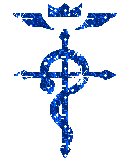

![]()
![]()
![]()
![]()
![]()
![]()
![]()

![]() Gebruik van kokosolie
Gebruik van kokosolie
klik op het plaatje hieronder om dit artikel te lezen
COCONUT OIL KILLS BACTERIA, VIRUSES AND FUNGI IN/ON YOUR PET!
Ranked in the top 10 most important food medicines, coconut oil is a must add to your pet’s diet! With over 13 Evidence-Based Medicinal Properties, the one we love the most is its yeast-bustin’ abilities!
Almost 50% of the medium-chain triglycerides found in coconut oil are lauric acids, saturated fatty acids that our bodies convert into monolaurin. Monolaurin is one of the natural world's greatest antivirals, antibacterials and antifungals. Because they come from natural sources, these fatty acids pose no danger to your pets' bodies, unlike man-made antibiotics and anti-virals.Coconut has been used for wound healing for thousands of years. A new study published in the International Journal of Dermatology confirms that coconut oil aides in treating atopic dermatitis, a chronic skin condition characterized by scaly and itchy rashes.
Furthermore, one study published in the Journal of Medicinal Food found that “coconut oil is extremely effective at killing Candida albicans, a common yeast infection in humans.” Another study published in the Journal of Bacteriology discovered that “coconut oil can help kill Staphylococcus aureus, which is a common cause of skin conditions and respiratory diseases.”
The recommended dosage for feeding is:
• ˝ teaspoon for every 10lbs of body weight daily
Or, if using topically, just rub the oil on your hands and apply to your pet’s coat (remember not to over do it!).
![]()
![]() Nieuwe ontdekking biedt hoop op het ontwikkelen van een
Nieuwe ontdekking biedt hoop op het ontwikkelen van een
behandeling tegen FIP -
klik op het plaatje hieronder
om dit artikel te lezen
![]()
![]() interessante website met
veel informatie over o.a. ziektes bij katten
interessante website met
veel informatie over o.a. ziektes bij katten
![]()
![]()
![]()
![]()
![]()
![]()
![]()
![]()
![]()
![]()
![]()
![]()
![]()
![]()
![]()
![]()
![]()
![]()
![]()
![]()
![]()
![]()
![]()
![]()
![]()
![]()
![]()
![]()
![]()
![]()
![]()
![]()
![]()
![]()
![]()
![]()
![]()
![]()
![]()
![]()
![]()
![]()
![]()
![]()
![]() Informatie over ziektes, geboorte,
medicatie etc.
Informatie over ziektes, geboorte,
medicatie etc.
klik op het plaatje
![]()
![]()
![]()
![]()
![]()
![]()
![]()
![]()
![]()
![]()
![]()
![]()
![]()
![]()
![]()
![]()
![]()
![]()
![]()
![]()
![]()
![]()
![]()
![]()
![]()
![]()
![]()
![]()
![]()
![]()
![]()
![]()
![]()
![]()
![]()
![]()
![]()
![]()
![]()
![]()
![]()
![]()
![]()
![]()
![]() Informatie over FORL (Feline Tooth
Resorption)
Informatie over FORL (Feline Tooth
Resorption)

Wikipedia - online encyclopedie
![]()
![]()
![]()
![]()
![]()
![]()
![]()
![]()
![]()
![]()
![]()
![]()
![]()
![]()
![]()
![]()
![]()
![]()
![]()
![]()
![]()
![]()
![]()
![]()
![]()
![]()
![]()
![]()
![]()
![]()
![]()
![]()
![]()
![]()
![]()
![]()
![]()
![]()
![]()
![]()
![]()
![]()
![]()
![]()
![]() Informatie over HCM
(Hypertrofische Cardio Myopathie)
Informatie over HCM
(Hypertrofische Cardio Myopathie)
klik op het plaatje
![]()
![]()
![]()
![]()
![]()
![]()
![]()
![]()
![]()
![]()
![]()
![]()
![]()
![]()
![]()
![]()
![]()
![]()
![]()
![]()
![]()
![]()
![]()
![]()
![]()
![]()
![]()
![]()
![]()
![]()
![]()
![]()
![]()
![]()
![]()
![]()
![]()
![]()
![]()
![]()
![]()
![]()
![]()
![]()
![]() Link naar het online boek 'Feline
Husbandry' door dr Niels C. Pedersen van UC Davis - gepubliceerd in 1991
Link naar het online boek 'Feline
Husbandry' door dr Niels C. Pedersen van UC Davis - gepubliceerd in 1991
![]()
![]()
![]()
![]()
![]()
![]()
![]()
![]()
![]()
![]()
![]()
![]()
![]()
![]()
![]()
![]()
![]()
![]()
![]()
![]()
![]()
![]()
![]()
![]()
![]()
![]()
![]()
![]()
![]()
![]()
![]()
![]()
![]()
![]()
![]()
![]()
![]()
![]()
![]()
![]()
![]()
![]()
![]()
![]()
![]() Mond- en gebitsproblemen bij de
kat
Mond- en gebitsproblemen bij de
kat
klik op de foto
![]()
![]()
![]()
![]()
![]()
![]()
![]()
![]()
![]()
![]()
![]()
![]()
![]()
![]()
![]()
![]()
![]()
![]()
![]()
![]()
![]()
![]()
![]()
![]()
![]()
![]()
![]()
![]()
![]()
![]()
![]()
![]()
![]()
![]()
![]()
![]()
![]()
![]()
![]()
![]()
![]()
![]()
![]()
![]()
![]() Kattenbezitters hebben minder
kans op een hartaanval
Kattenbezitters hebben minder
kans op een hartaanval
![]()
![]()
![]()
![]()
![]()
![]()
![]()
![]()
![]()
![]()
![]()
![]()
![]()
![]()
![]()
![]()
![]()
![]()
![]()
![]()
![]()
![]()
![]()
![]()
![]()
![]()
![]()
![]()
![]()
![]()
![]()
![]()
![]()
![]()
![]()
![]()
![]()
![]()
![]()
![]()
![]()
![]()
![]()
![]()
![]() Artikel van de hand van dr. Susan
Little over de behandeling van een baarmoederontsteking
Artikel van de hand van dr. Susan
Little over de behandeling van een baarmoederontsteking
![]()
![]()
![]()
![]()
![]()
![]()
![]()
![]()
![]()
![]()
![]()
![]()
![]()
![]()
![]()
![]()
![]()
![]()
![]()
![]()
![]()
![]()
![]()
![]()
![]()
![]()
![]()
![]()
![]()
![]()
![]()
![]()
![]()
![]()
![]()
![]()
![]()
![]()
![]()
![]()
![]()
![]()
![]()
![]()
![]() interessante websites met
veel informatie over o.a. ziektes bij katten
interessante websites met
veel informatie over o.a. ziektes bij katten
klik op het logo
![]()
![]()
![]()
![]()
![]()
![]()
![]()
![]()
![]()
![]()
![]()
![]()
![]()
![]()
![]()
![]()
![]()
![]()
![]()
![]()
![]()
![]()
![]()
![]()
![]()
![]()
![]()
![]()
![]()
![]()
![]()
![]()
![]()
![]()
![]()
![]()
![]()
![]()
![]()
![]()
![]()
![]()
![]()
![]()
![]() giftige planten voor katten
giftige planten voor katten
klik op de foto
![]()
![]()
![]()
![]()
![]()
![]()
![]()
![]()
![]()
![]()
![]()
![]()
![]()
![]()
![]()
![]()
![]()
![]()
![]()
![]()
![]()
![]()
![]()
![]()
![]()
![]()
![]()
![]()
![]()
![]()
![]()
![]()
![]()
![]()
![]()
![]()
![]()
![]()
![]()
![]()
![]()
![]()
![]()
![]()
![]() Informatie
over homeopathie
Informatie
over homeopathie
klik op de foto
![]()
![]()
![]()
![]()
![]()
![]()
![]()
![]()
![]()
![]()
![]()
![]()
![]()
![]()
![]()
![]()
![]()
![]()
![]()
![]()
![]()
![]()
![]()
![]()
![]()
![]()
![]()
![]()
![]()
![]()
![]()
![]()
![]()
![]()
![]()
![]()
![]()
![]()
![]()
![]()
![]()
![]()
![]()
![]()
![]() Cat
Health, Illness, & Well Being Topic Library
Cat
Health, Illness, & Well Being Topic Library
![]()
![]()
![]()
![]()
![]()
![]()
![]()
![]()
![]()
![]()
![]()
![]()
![]()
![]()
![]()
![]()
![]()
![]()
![]()
![]()
![]()
![]()
![]()
![]()
![]()
![]()
![]()
![]()
![]()
![]()
![]()
![]()
![]()
![]()
![]()
![]()
![]()
![]()
![]()
![]()
![]()
![]()
![]()
![]()
![]() hier vind u nuttige informatie
over medicijnen voor o.a. katten (samenstelling, dosering etc.)
hier vind u nuttige informatie
over medicijnen voor o.a. katten (samenstelling, dosering etc.)
klik op het logo
![]()
![]()
![]()
![]()
![]()
![]()
![]()
![]()
![]()
![]()
![]()
![]()
![]()
![]()
![]()
![]()
![]()
![]()
![]()
![]()
![]()
![]()
![]()
![]()
![]()
![]()
![]()
![]()
![]()
![]()
![]()
![]()
![]()
![]()
![]()
![]()
![]()
![]()
![]()
![]()
![]()
![]()
![]()
![]()
![]() hier vind u veel medische informatie over de kat
hier vind u veel medische informatie over de kat
klik op de foto
![]()
![]()
![]()
![]()
![]()
![]()
![]()
![]()
![]()
![]()
![]()
![]()
![]()
![]()
![]()
![]()
![]()
![]()
![]()
![]()
![]()
![]()
![]()
![]()
![]()
![]()
![]()
![]()
![]()
![]()
![]()
![]()
![]()
![]()
![]()
![]()
![]()
![]()
![]()
![]()
![]()
![]()
![]()
![]()
hier vindt u o.a. medische artikelen
klik op het logo
![]() Bij de
Amerikaanse Universiteit UC
Davis is nu een DNA-test
beschikbaar waarmee o.a. bepaald kan worden of een Oosters Korthaar al dan niet
het gen voor Siamees draagt. Zie onderstaand bericht van dr Leslie Lyons:
Bij de
Amerikaanse Universiteit UC
Davis is nu een DNA-test
beschikbaar waarmee o.a. bepaald kan worden of een Oosters Korthaar al dan niet
het gen voor Siamees draagt. Zie onderstaand bericht van dr Leslie Lyons:
I am pleased to
announce that the DNA tests for Points and Sepia have been launched by the
Veterinary Genetics Laboratory at UC Davis.
You can now send a buccal (cheek)
swab into UC Davis and have a cat tested to
determine it's genotype at the albinism locus: cscs,
cscb, cbcb, Ccs, Ccb, or CC. No more guessing as to
whether that cats is carrying points or not! It will
also identify albinism cats and carriers of that
allele (ca).
PKD testing
in
British Shorthairs is also available.
for more information
![]()
Leslie A. Lyons, PhD
Associate
Professor
Department of Population Health & Reproduction
School of Veterinary Medicine
University of California, Davis, Davis, CA 95616
Lab e-mail: felinegenome@ucdavis.edu
web: http://www.vetmed.ucdavis.edu/PHR/LyonsDen/
![]()
![]()
![]()
![]()
![]()
![]()
![]()
![]()
![]()
![]()
![]()
![]()
![]()
![]()
![]()
![]()
![]()
![]()
![]()
![]()
![]()
![]()
![]()
![]()
![]()
![]()
![]()
![]()
![]()
![]()
![]()
![]()
![]()
![]()
![]()
![]()
![]()
![]()
![]()
![]()
![]()
![]()
![]()
![]()
![]() voor het laatste nieuws
betreffende DNA-onderzoek naar hypertrofische cardiomyopathie (HCM)
voor het laatste nieuws
betreffende DNA-onderzoek naar hypertrofische cardiomyopathie (HCM)
![]()
![]()
![]()
![]()
![]()
![]()
![]()
![]()
![]()
![]()
![]()
![]()
![]()
![]()
![]()
![]()
![]()
![]()
![]()
![]()
![]()
![]()
![]()
![]()
![]()
![]()
![]()
![]()
![]()
![]()
![]()
![]()
![]()
![]()
![]()
![]()
![]()
![]()
![]()
![]()
![]()
![]()
![]()
![]()
![]()
![]() Er
is momenteel veel discussie over vaccinaties.
Er
is momenteel veel discussie over vaccinaties.

klik op het plaatje voor het
artikel
'Enten is beter dan
genezen, of toch niet?
![]()
![]()
![]()
![]()
![]()
![]()
![]()
![]()
![]()
![]()
![]()
![]()
![]()
![]()
![]()
![]()
![]()
![]()
![]()
![]()
![]()
![]()
![]()
![]()
![]()
![]()
![]()
![]()
![]()
![]()
![]()
![]()
![]()
![]()
![]()
![]()
![]()
![]()
![]()
![]()
![]()
![]()
![]()
![]()
![]()
![]() Nog
een artikel over het onderwerp vaccinaties
Nog
een artikel over het onderwerp vaccinaties
'De jaarlijkse prik - meer gewoonte dan wetenschap'
![]()
![]()
![]()
![]()
![]()
![]()
![]()
![]()
![]()
![]()
![]()
![]()
![]()
![]()
![]()
![]()
![]()
![]()
![]()
![]()
![]()
![]()
![]()
![]()
![]()
![]()
![]()
![]()
![]()
![]()
![]()
![]()
![]()
![]()
![]()
![]()
![]()
![]()
![]()
![]()
![]()
![]()
![]()
![]()
![]()
![]() Een
ongrijpbare sluipmoordenaar is de ziekte FIP
(Feline Infectious Peritonitis)
Een
ongrijpbare sluipmoordenaar is de ziekte FIP
(Feline Infectious Peritonitis)
voor informatie en de nieuwste inzichten over deze ziekte
![]()
![]()
![]()
![]()
![]()
![]()
![]()
![]()
![]()
![]()
![]()
![]()
![]()
![]()
![]()
![]()
![]()
![]()
![]()
![]()
![]()
![]()
![]()
![]()
![]()
![]()
![]()
![]()
![]()
![]()
![]()
![]()
![]()
![]()
![]()
![]()
![]()
![]()
![]()
![]()
![]()
![]()
![]()
![]()
![]()